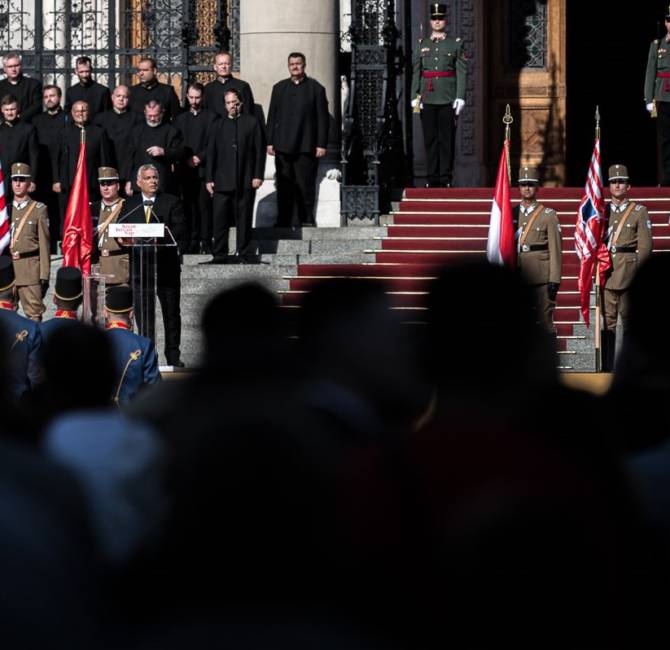By Petr Dvořák, editor at the Czech political institute Pravý břeh.
Czechia – The Czech Republic had an election on 2018, Octobre 5 and 6, with municipal elections taking place simultaneously with the first part of the two-rounded senate elections.
Czech municipal elections: Main government party may retain influence but loses the capital
The previous elections in 2014 were extraordinary because they took place just after a serious political crisis which caused the fall of the centre-right government and the rise of the then protesting “business-firm party” ANO. ANO has been led by Andrej Babiš, a billionaire and now the Prime Minister, with his program of managerial politics and ideological flexibility.
Municipal, regional, and European elections tend to be popular referenda on how the government of the day is doing. This is even more true in the case of ANO, a peculiar party which has been increasingly dominating Czech politics for the last five years.
The results
From the overall figures, ANO did quite well: The party won virtually the same number of seats as in the last elections, retaining the influence in most cities where it continues to hold the majority of seats. This is particularly true in large cities (but much less so in small towns). However, the party’s support slumped in the capital city Prague where they ended up in fifth position behind the conservatives, pirates, liberals, and another ad-hoc party project.
As for their opponents, conservatives (ODS), although generally still weaker than ANO, have maintained their position in smaller towns and moved forward in larger cities. The left, on the other hand, is now in a crisis. Particularly noticeable are grave results of social democrats (ČSSD) who did not win a single seat in many municipalities and have lost about a half of seats overall. The formerly strongest party on the left is therefore left with barely any influence on midsize and larger cities. Moreover, they are currently undergoing a shortage of cadres which may affect their future ability to recruit experienced leaders for national level politics. Similar results stroke the communists (KSČM).
On the other hand, independent candidates, local parties, and ad-hoc regional coalitions who are generally favoured in Czech municipal and regional elections were very successful. One of the more established brands in this section of the political spectre, “Mayors and independents” (STAN), won about 20% more seats than the last time.
The limits of technocracy
The analysts are questioning if this outcome is a good enough message for the main government party (ANO), especially considering two symbolical failures – their defeat in the capital city and the limited success in senate elections.
ANO had made several mistakes in Prague: The installation of Mrs Adriana Krnáčová as the mayor of Prague, who only had some experience from the non-profit sector, left Prague with serious problems in the areas of development, transport, and infrastructure. That is why ANO was now searching for a completely new leader for Prague. In the end, they came up with Mr Petr Stuchlík, an unknown entrepreneur in financial credit business, a last-minute move which surprised many.
Mr Stuchlík, a rookie politician aware of the limits of ANO in Prague, tried to downplay the actual results of their four-year rule and to focus solely on the periphery, with a grand campaign aimed at the less well-off voters. It was not enough, though. People of Prague were probably weighing their representatives solely by their tangible results which is always a danger for a party which intentionally renounces value politics, building its credibility on technical management only.
Coalition bargaining decides
The results provoke two questions. First, is the story of ANO a warning on the pitfalls of purely pragmatic, valueless politics? After all, if you position your party as a party of managers, you cannot be surprised that voters will judge you in a harsh, cold way, like it works in business. Prof. Stanislav Balík, a leading Czech expert on municipal politics, says: “The limited success of ANO does show that the party may run into problems when the party leader is not personally involved. The results from many cities show that the brand of ANO as a managerial power is less effective than the brand of their leader himself.”
Second, are the limited results of many traditional parties a sign of party system change? Prof. Lubomír Kopeček, Balík’s colleague from the Masaryk University in Brno, has told us: “It may look that it is independent and local parties who won the election. Let us be careful, though: Although their results point at the weakening position of traditional parties in Czech politics, the heterogeneity of cities simply do not allow forming one final message. Every town is different, there are thousands of “battlegrounds”, and therefore thousands of winners. Which is also the reason why it is so easy for the politicians to draw several different interpretations from the results.”
Finally, one should note that it is usually necessary to build coalitions in Czech politics on all levels. The majority of votes does not necessarily mean an automatic inclusion in the ruling coalition. And so, although the results of the election are known, their practical effect will not be clear until most deals on party coalitions are arranged, a process which has only started now.



